NRF Rated Researchers
Home » Faculty of Education » Research »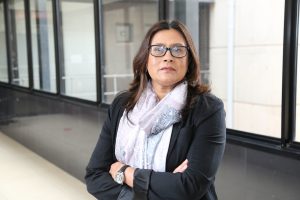
Prof Nadine Petersen
Professor Nadine Petersen is the Executive Dean: Faculty of Education at the University of Johannesburg. She heads up a faculty with five academic departments, two research centres and four South African National Research Foundation (NRF) funded chairs. Nadine has held various leadership positions within UJ: as head of department for Childhood Education and as Vice Dean: Teaching and Learning. As an NRF C2 rated researcher Nadine Petersen’s research interests are in teacher education for the primary school where she collaborates closely with international colleagues and in service learning in teacher education – in 2019 she received the inaugural award of the International Association for Research in Service Learning and Engagement in recognition of excellence in scholarship that advances the practice of service-learning and community engagement within and across borders/cultures. She serves as trustee on the boards of the Gauteng Education Development Trust, the National Research Foundation and the UJ pension fund and previously served on the Sasol Inzalo Foundation board for 10 years.
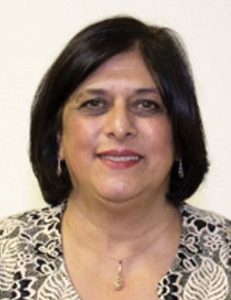
Prof Shireen Motala
The DHET/NSF-DSI/NRF SARChI Chair in Teaching and Learning (PSET) (SARChI T&L) Tier 1 was awarded to Professor Shireen Motala in July 2020. The inception of the Chair took place in October 2020 and the first term of the Chair continues until 2024 in a four-year cycle. The national research chair is funded by the Department of Higher Education and Training (DHET) and coordinated by the National Research Foundation, South Africa in July 2020 at a Tier 1 level.
Prof Motala is formerly the Head: Postgraduate School (PGS), University of Johannesburg (UJ) and a professor in the Faculty of Education (FoE), UJ. The SARChI: T&L is located within the FoE. Prior to joining UJ in 2010, Professor Shireen Motala, was the Director of the Education Policy Unit at the University of the Witwatersrand. Her academic qualifications include: a BA (University of Durban-Westville), a B Social Science Honours (University of Cape Town), an MA (University of Warwick), a PGCE (University of London) and a PhD (University of the Witwatersrand). In March 2010, she was appointed as the Director of the newly established Postgraduate Centre: Research and Innovation at the University of Johannesburg. In May 2016, she was appointed as the Senior Director of the Postgraduate School. She is currently UJ’s representative on the international body, the Council Graduate Schools and participates in the Universitas 21 activities.
She has held numerous leadership roles related to Higher Education including: Chairperson of the Education Policy Consortium (2006-2010), Chairperson of the UNESCO South African Commission (2001-2006), and first inaugural president of the South African Research Association (SAERA) (2013-2014). She was appointed by the Minster of Higher Education and Training to serve on the Council of Higher Education (CHE) for two terms from 2010-2010. In 2013, she served on the Ministerial Committee to review the national Senior Certificate examination. She is currently a trustee at the South African Institute for Distance Education. She is on the Assessment and Accreditation committee of UMALUSI.
Research Interests:
An NRF rated researcher, she has initiated collaborations between universities across Africa and with Asia and Europe, and this has led to the formation of long-term regional and international partnerships. Playing a leadership role in research, she was the principal investigator or the international Consortium for Research on Equity, Access and Transitions in Education (CREATE). Her research record is substantial and includes publications in journals and books and editorship of local and international journals. Her research interests and expertise have been in the areas of education financing and school reform, access and equity, and education quality.
Her doctoral research examined how financial redistributive strategies can provide equitable access and reduce inequalities in the South African public schooling system. Spanning a long career in research in all its aspects, she led strategies for: research capacity development, knowledge management, research income generation, and stakeholder relationship management. Promoting scholarship and a sound intellectual culture and developing the next generation of scholars in order to contribute to societal transformation, have been in the forefront of her activities, and will continue to be during tenure as Chair. In 2022, Prof Motala co-edited three special issues: Southern African Review of Education (Special Issue), 27(1); Scholarship of Teaching and Learning in the South, 6(1); Scholarship of Teaching and Learning in the South, 6(2).
Selected Publications:
Chiramba, O., and Motala, S., (2023). Towards transforming teaching and learning in higher education: interrogating poverty through a decolonial perspective, Curriculum Perspectives. 10.1007/s41297-023-00188-w
Motala, S., Sayed, Y., & Maggott, T. (2023). The SDG agenda and university transformation in Africa: The decolonial turn deferred. African journal of teacher education, 12(2), 189-209. DOI: https://doi.org/10.21083/ajote.v12i2%20%20Special%20Issue.751
Msimango, S., & Motala, S. (2023). Gendered ‘Leaky Pipelines’ in Higher Education: Towards a Supervision Framework for Breaking Through the Glass Ceilings. Journal for New Generation Sciences. 21(1), 116-131
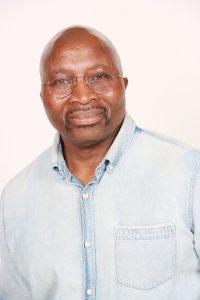
Prof Kakoma Luneta
Dr Luneta is an NRF rated researcher and Professor of Mathematics Education in the Faculty of Education at the University of Johannesburg, where he has been a faculty member since January 2005. Dr Luneta holds a PhD in Mathematics Teacher Education from the University of Witwatersrand and master’s in mathematics Teacher Education from the University of Sussex – England. His research interest is in Mathematics Teachers Education at Secondary and Elementary school; Mathematics/numeric cognition and Professional Development and Mentorship of Mathematics Teachers. He has taught mathematics and physics in various Northern and Southern African countries, the UK and the US. He has supervised to completion several masters and doctoral students from Sub Sahara Africa, Greece and South Korea. He has been appointed a visiting Professor of Mathematics Education in the Faculty of Education of the University of British Columbia in Vancouver Canada and was once a Visiting Scholar at Stanford University in the US, Bahir Dar University in Ethiopia and recently a Visiting Scholar at the University of Cambridge – Centre for Neuroscience Education. He has published five books, over 100 book chapters and articles in accredited journals. He is the Editor in Chief of the newly launched African Journal of Teacher Education and Development. ajoted.org.
Publications
Luneta, K., & Schäfer, M. (2024). Mathematics Teacher Training and Development in Africa. Trends at Primary and Secondary School Levels.Teacher Education, Learning Innovation and Accountability. C Wyatt‐Smith (Series Editor). Springer. https://doi.org/10.1007/978-3-031-68755-6
Motseki, P. & Luneta, K. (2024) Exploring TVET students’ errors in optimisation problems: An error analysis perspective. Submitted to the African Journal of Research in Mathematics, Science and Technology Education
Baidoo, J., & Luneta, K. (2024). Implementing blended learning to enhance the teaching of 3-dimensional trigonometry. Journal of Education and E-Learning Research, 11(2), 332–344. https://doi.org/10.20448/jeelr.v11i2.5565
Molise, D. C & Luneta, K (2024). An overview of the causes of dyscalculia and its impact on learners’ arithmetic ability. The Independent Journal of Teaching and Learning – 19 (1) 124-144
Academic links
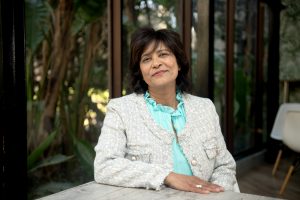
Prof Sarita Ramsaroop
Sarita Ramsaroop is an Associate Professor and Vice-Dean: Research and Innovation at the Faculty of Education, University of Johannesburg. Her teaching and scholarship in higher education is in teacher education. Her main research focuses on student engagement in coursework and fieldwork, specifically in interrogating the role of schools in bridging the divide between student teachers learning in coursework and fieldwork and strengthening mentoring and school-university partnerships. A second area of expertise is teaching Social Sciences in the primary school (History and Geography). She is currently involved in research projects investigating the role of partner schools in the education of student-teachers, project-based learning and mixed-reality research. Internationally, she is involved in collaborative research projects with the University of Helsinki. She has published at the national and international levels, and also serves as a supervisor for postgraduate students.
Recent Publications
Ramsaroop, S & Petersen, N. (2020). Building Professional Competencies Through a Service Learning ‘Gallery Walk’ in Primary School Teacher Education, Journal of University Teaching & Learning Practice, 17(4), 2020.
Available at:https://ro.uow.edu.au/jutlp/vol17/iss4/3
Loukomies, A., Petersen, N., Ramsaroop, S., Henning, E., & Lavonen, J. (2022). Student teachers’ situational engagement during teaching practice in Finland and South Africa. The Teacher Educator, 1-25.
Van der Haar, H., Petersen, N & Ramsaroop, S (2022). Differentiating between experience and expertise in mentoring student teachers. South African Journal of Education.
Selepe, K., Ramsaroop, S. And Carolin, A. (2022). Incorporating indigenous knowledge in the teaching of weather and climate in primary school classrooms in KwaZulu-Natal, South Africa, Journal of Geography Education in Africa (JoGEA), 5: 1 – 25. https://doi.org/10.46622/jogea.v5i1.3953
Ramsaroop, S. (2023). Rethinking university pedagogy: challenges and opportunities for curriculum transformation in the era of Covid-19 pandemic. In Teaching and Learning from a Curriculum Transformation Perspective: Future Implications in the era of the Covid-19 pandemic. IGI Global, 213-228.
Ramsaroop, S., Batchelor J., & Petersen, N. (2023). COVID-19 – lessons learnt: a teacher education leadership perspective. In Gravett, S & Petersen, N. (Eds.). Future-proofing Teacher Education: Voices from South Africa and beyond, Chapter 13. Routledge.
Lavonen, J., Ramsaroop, s., Loukomies, A., Petersen, N., & Henning, E. (2023). Domains and Origins of Information and Knowledge Encountered by Pre-Service Teachers During Professional Experiences in Helsinki and Johannesburg. Asia-Pacific Journal of Teacher Education (CAPJ)
Cancelliere, S., Ramsaroop, S., & Petersen, N. (2023). Infusing 21st-century competencies into scripted foundation phase literacy lessons. South African Journal of Childhood Education, 13(1), 1288.
Gravett, S., Van der Merwe, D., Ramsaroop, S., Tshabalala, P., Bremner, C., & Mello, P. (2023). Mixed-reality simulation to support practice learning of preservice teachers. Education sciences, 13(10), 1062.
Ramsaroop, S., Mahase, M.F. & Petersen, N. (2024). ‘Bridging the theory-practice divide: Reflections of school-based student teachers’, South African Journal of Childhood Education14(1), a1558.
Gravett, S., Ramsaroop, S., & Petersen, N. (2025). Inquiry-oriented and practice-based teacher education in partnerships with schools: A South African perspective. In I. Menter, R. A. Valeeva and M. Prata-Linhares (Eds.), Globalization and teacher education in the BRICS countries: the positioning of research and practice in comparative perspective, Routledge.
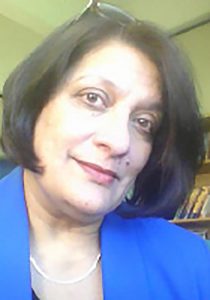
Prof Leila Kajee
Prof Leila Kajee’s research interests span social justice and transformation through language, literacies, and identities. She has taught a range of programmes at undergraduate and postgraduate levels, including Applied English, Educational Linguistics, Literacies, Research Design, Online learning and Digital Literacy. Leila is full professor in the Department of Education & Curriculum Studies. She works predominantly with pre- and in-service teachers, and participates in and leads several funded local and international projects in her research area. She is currently working on projects in refugee and immigrant communities. She supervises postgraduates in areas of her research interests.
Recent publications:
Kajee, L. (ed.) Between two worlds: Mapping immigrant literacy practices and identity construction in South Africa. Codesria.
Undergraduate modules:
Methodology in English 4
Postgraduate modules and Supervision:
Honours in Language, Literacies and Literature; M.Ed, PhD
Committees:
Senate
Faculty Higher Degrees
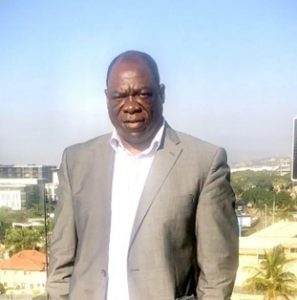
Prof Joseph Jinja Divala
Joseph Jinja Divala is an associate philosopher of philosophy of education. He is also an NRF-rated researcher. He has a PhD in Philosophy of Education obtained from Stellenbosch University (2008), a Master of Education in Philosophy of Education from the University of the Witwatersrand (2005), a Bachelor of Education Honours (with distinction) from the University of the Witwatersrand (2004). He also has a Bachelor of Arts (Honours) in Philosophy from the University of Malawi (1999), a Bachelor of Arts in Theology (majoring in Theology and Social and Political Philosophy from the University of Malawi (1997), a Diploma in Theology from the University of Malawi (1994) as well as a Certificate in Liberal Arts, Social Sciences and Theology from Kachebere Major Seminary in Malawi (1992).
Before joining the University of Johannesburg, Prof Joseph Jinja Divala lectured in Philosophy, Philosophy of Education, Higher Education Policy, Education Transformation, Public Finance Management and Research Methodology at the University of the Witwatersrand (Wits) University, Stellenbosch University as well as the University of Malawi.
Prof Joseph Jinja Divala researches, publishes and supervises postgraduate students in a number of sub-fields of Philosophy of Education such as: Aims and Conceptions of Education, Deliberative Democratic Citizenship Theory and Practice in Education, Citizenship Identities; Social Justice Education, Higher education autonomy, policy and practice, Educational Theory and Curriculum. Over the years, Prof Divala has supervised and successfully graduated students at honours, masters and doctoral levels in these areas. He has also supervised and collaborated with a number of postdoctoral fellows.
Prof Joseph Jinja Divala is an executive board member of The International Council on Education for Teaching (ICET). He is also a member of several journal review boards locally and internationally.
If you want to know more about his accredited research works, please visit the following links:
Undergraduate modules: Education Studies 3A
Postgraduate modules/Supervision experience: Philosophy of education, social justice
Committees: The International Council on Education for Teaching (ICET)
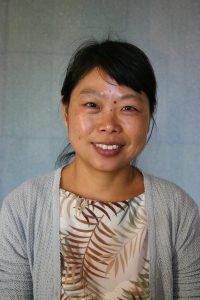
Prof Ke Yu
Prof Yu is an associate professor at the Department of Education Leadership and Management. She worked at at the Human Sciences Research Council before joining UJ. She holds Bachelor of Economics degree from the University of Shanghai for Science and Technology in China, Master in International Business from the Norwegian School of Economics and Business Administration, and PhD from Educational Management and Policy Studies department at the University of Pretoria in South Africa. She is a critical thinker with extensive inter-disciplinary knowledge and a wide range of interests. Her publication spans authoring and co-authoring of over 35 book chapters, journal articles, reports and policy briefs and 10 conference presentations. Her research interests primarily centers around knowledge production, learning and communication theories, educational technology, as well as counter narrative and comparative studies.
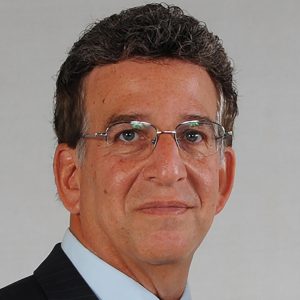
Prof Philip Hallinger
Philip Hallinger is Professor of Educational Management at Chulalongkorn University (Bangkok Thailand) and Distinguished Visiting Professor at the Faculty of Education in the University of Johannesburg (South Africa).
He has worked as a school teacher and administrator and conducted training with more than 15,000 school principals across North and South America, Asia, Europe and Africa.
In 2014 he received the Excellence in Research on Educational Leadership Award from the American Educational Research Association and the Roald F. Campbell Award for Distinguished Lifetime Achievement from the University Council for Educational Administration.
His research focuses on principal instructional leadership, problem-based learning, leadership development, and international studies in educational leadership and management.
His scholarly articles, which have achieved more than 16,000 citations, are the most highly-cited articles in four different education journals. Professor Hallinger is Chief Co-Editor of the Journal of Educational Administration.
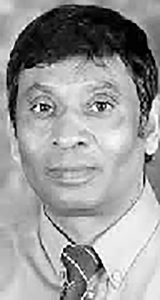
Prof Raj Mestry
Prof Raj Mestry’s has two main research foci emphasising social justice and equity in education: Financial Management and Women Leadership. He has received local and international recognition from scholars in the field of education leadership and management. He serves as executive member of the Education Association of South Africa and is a member of the prestigious American Education Research Association (AERA) and the British Educational Leadership, Management and Administration Society (BELMAS). In 2012, he was awarded the Research Medal for his research contribution to education from the Education Association of South Africa. Prof Raj Mestry is now an Emeritus Professor but NRF rated
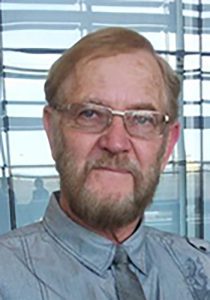
Prof Chris Myburgh
Prof Myburgh is a tenured professor in Psychology of Education since 1989 and is an expert regarding quantitative as well as qualitative research methodologies. His focus areas are especially adolescence, persons confronted with life challenges and strategies to facilitate these persons’ mental health. He serves on the ethics committees of the Medical School of the University of the Witwatersrand and the Faculty of Education (vice chairperson) of the University of Johannesburg. Prof Chris Myburgh is now an Emeritus Professor but NRF rated.
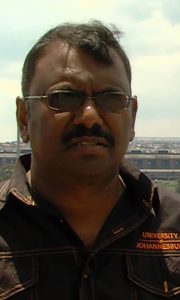
Prof Jace Pillay
Prof Jace Pillay holds a South African National Research Foundation Research Chair in Education and Care in Childhood. He heads a research team focusing on the educational, psychological, and social care of orphans and vulnerable children.
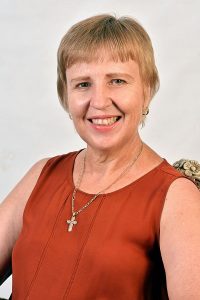
Prof Erica Spangenberg
Prof Erica D Spangenberg is a C 2 NRF-rated researcher. Her research focuses on Mathematics Education in blended learning environments to foster 21st-century competencies. This niche has a three-way focus: (1) teaching and learning approaches in mathematics; (2) affective characteristics to shape behaviour in the 21st century; and (3) the use of technology. Other research interests include Ethno-Mathematics, pedagogical content knowledge in mathematics, problem-solving-based learning, including mathematical modelling, visualisation, and ICT in the teaching and learning of mathematics.
Undergraduate teaching includes: Teaching Methodology and Practicum (Mathematics)
Postgraduate Teaching includes: PG (Dip); BEd Hons; MEd and PhD (Mathematics in Education)
Teaching in Research Methodology programmes: BEd Honours (Issues in Mathematics Education and Research Project)
Master’s students (Supervisor)
Baumgartner, WL 2016. A dual-intervention strategy for Mathematical Literacy learners for selected undergraduate studies (Cum Laude and Chancellor’s medal)
De Freitas, G 2018. A professional development programme to advance the Technological Pedagogical Content Knowledge of senior phase mathematics teachers in South Africa (Cum Laude and Chancellor’s medal).
Alphane, K P 2020. Strategies for solving word problems on number patterns for grade 9 mathematics teachers in rural schools.
Asmail, R 2020. Values that grade 8 to 10 learners from a public mathematics-and-science focus school in Johannesburg associate with mathematics learning (Cum Laude).
Madosi, T 2020. Values that grade 9 learners from a public school in the Ekurhuleni district of Gauteng associate with mathematics learning.
Roberts, A K 2020. Grade 12 peer-tutors’ conceptions of their role as motivators for grades 8 and 9 mathematics learners.
Magabvu, B 2021. Elements of pedagogical content knowledge displayed by mathematics teachers in the teaching of trigonometry (Cum Laude).
Fortune, A 2022. The use of a mandala-colouring activity to investigate grade 10 learners’ mathematics anxiety (Cum Laude).
PhD students (Supervisor)
Kotze, J H 2018. The influence of an educational intervention on the visualization of engineering students.
Baumgartner, WL 2022. Design principles for a pre-undergraduate foundation programme mathematics course informing academic growth.
Accredited publications:
Baumgartner, W.L., Spangenberg, E.D., & Lautenbach, G.V. (2024). Relating motivation and learning strategies to algebra course results in a foundation programme. Pythagoras, 45(1), a781. (https://doi.org/10.4102/pythagoras.v45i1.781)
Oladele, J.I., Ndlovu, M., Spangenberg, E.D., Daramola, D.S., & Obimuyiwa, G.A. (2024). Transitioning to Problem-Based Learning in Higher Education: Opportunities for Producing 21st-Century Pre-Service Teachers in Sub-Saharan Africa. Kurdish Studies, 12(2), 609–626. (https://kurdishstudies.net/menu-script/index.php/KS/article/view/1838 (https://doi.org/10.58262/ks.v12i2.049)
Spangenberg, E.D. (2024). Pre-service teachers’ experiences of teaching mathematics online during practicum in an African context due to COVID-19. In U. Ramnarain & M Ndlovu (Eds.), Information and Communications Technology in STEM Education (pp. 116–144). London and New York: Routledge Tailor & Francis Group. ISBN 978-1-032-22668-2. (https://doi.org/10.4324/9781003279310)
Oladele, J., Ndlovu, M., & Spangenberg, E.D. (2023). Application of 4IR for STEAM education in higher education and implications for developing countries: A systematic review. Journal of Research and Reviews in Social Sciences Pakistan, 6(2), 2162–2181. (https://journal.kinnaird.edu.pk/wp-content/uploads/2024/01/1.-Jumoke-I.-Oladele-JRRSSP23030.pdf)
Fortune, A. & Spangenberg, E.D. (2023). Trait- and state-components of mathematics anxiety versus perceived mathematics anxiety. International Journal of Education in Mathematics, Science and Technology (IJEMST), 11(6), 1366-1385. https://doi.org/10.46328/ijemst.2958
Chirinda, B., Ndlovu, M., & Spangenberg, E.D. (2023). Equitable mathematical problem-solving instruction: An inquiry. In B. Chirinda, P. Barmby, & K. Luneta (Eds.), Mathematical problem solving in South Africa: Research & Practice (pp. 44–62). South Africa: Unisa Press. ISBN 978-1-77615-137-0.
Oladele, J.I., Ndlovu, M., Spangenberg, E.D., & Ramdhany, V. (2022). Item Bank Development and Validation for Ability Estimation: Postgraduate Certification in Education (Mathematics) Computer Adaptive Testing Application. PONTE Journal, 78(10), 129–146. (http://dx.doi.org/10.21506/j.ponte.2022.10.8)
Oladele, J.I., Ndlovu, M., & Spangenberg, E.D. (2022). Simulated computer adaptive testing method choices for ability estimation with empirical evidence. International Journal of Evaluation and Research in Education (IJERE), 11(3), 1392–1399. (http://doi.org/10.11591/ijere.v11i3.21986)
Chirinda, B., Ndlovu, M., & Spangenberg, E. (2022). Mathematics learners’ perceptions of emergency remote teaching and learning during the COVID-19 lockdown in a disadvantaged context. International Journal of Learning, Teaching and Educational Research, 21(1), 179–194. (https://doi.org/10.26803/ijlter.21.1.11)
Baumgartner, W.L., Spangenberg, E.D., & Lautenbach, G.V. (2021). Developing algebraic knowledge: Foundation programme ex-mathematical literacy students’ perceptions. EURASIA Journal of Mathematics, Science and Technology Education, 17(11), em2026. (https://doi.org/10.29333/ejmste/11245)
Spangenberg, E.D. (2021d). Manifesting of pedagogical content knowledge on trigonometry in teachers’ practice. Journal of Pedagogical Research, 5(3), 135–163. (https://doi.org/10.33902/JPR.2021371325)
Spangenberg, E. (2021c, July 14-16). Mathematics pre-service teachers’ views about the affordances of a flipped classroom towards their professional development. In Z. Jojo, & M. Du Plooy (Eds). Developing Equitable Mathematical Teaching and Learning Practices that Empower Teachers and Learners in the 4IR Era. Paper presented virtually at the 26th Annual National Congress of the Association for Mathematics Education (AMESA), South Africa (Mpumalanga 290–305). Johannesburg, S.A.: AMESA. ISBN 978-0-620-94779-4.
Spangenberg, E. (2021b, July 14-16). The influence of wording in a mathematics assessment activity on performance. In Z. Jojo, & M. Du Plooy (Eds). Developing Equitable Mathematical Teaching and Learning Practices that Empower Teachers and Learners in the 4IR Era. Paper presented virtually at the 26th Annual National Congress of the Association for Mathematics Education (AMESA), South Africa (pp. 393–403). Johannesburg, S.A.: AMESA. ISBN 978-0-620-94779-4.
Chirinda, B., Ndlovu, M., & Spangenberg, E. (2021). Teaching mathematics during the COVID-19 lockdown in a context of historical disadvantage. Education Sciences, 11(4), 177–191. (https://doi.org/10.3390/educsci11040177)
Spangenberg, E.D. (2021a). Student-teachers’ views on the affordances of incorporating cultural artifacts in mathematics lessons in South Africa. In I. C. Chahine, & J. de Beer (Eds.), Evidence-Based Inquiries in Ethno-STEM Research: Investigations in Knowledge Systems across Disciplines and Transcultural Settings. (pp. 101–123). Charlotte, NC: Information Age Publishing Inc.
Ubah, I.J.A., & Spangenberg, E. (2020, October 20-21). Prospective Mathematics Teachers Perception of Online Education in Mathematics Education Modules: Insight from COVID-19 Pandemic Era. In M. Motseke, M. Chitiyo, U.I. Ogbonnaya, O.C. Dada, & G. Charles-Ogan (Eds). Rethinking teaching and learning in the 21st century. Paper presented virtually at the South Africa International Conference on Education (SAICEd), South Africa (pp. 116–129). Cape Town, S.A.: African Academic Research Forum. ISBN 978-0-620-89546-0.
Roberts, A.K., & Spangenberg, E.D. (2020). Peer tutors’ views on their role in motivating learners to learn mathematics. Pythagoras, 41(1), a520. (https://doi.org/10.4102/pythagoras.v41i1.520)
Asmail, R., Spangenberg, E.D., & Ramdhany, V. (2020). What grade 8 to 10 learners from a mathematics-and-science-focus school value as important in the learning of mathematics. African Journal of Research in Mathematics, Science and Technology Education, 24(2), 241–252. (https://doi.org/10.1080/18117295.2020.1818041)
Ubah, I.J.A., Spangenberg, E., & Ramdhany, V. (2020). Blended learning approach to mathematics education modules: An analysis of pre-service teachers’ perceptions. International Journal of Learning, Teaching and Educational Research, 19(7), 298 –319. (https://doi.org/10.26803/ijlter.19.7.17)
Ndlovu, M., Ramdhany, V., Spangenberg, E. D., & Govender, R. (2020). Preservice teachers’ beliefs and intentions about integrating mathematics teaching and learning ICTs in their classrooms. ZDM, 52(7), 1365-1380. (https://doi.org/10.1007/s11858-020-01186-2)
Spangenberg, E. D., & Van Putten, S. (2020). Relating Elements of Mathematics Anxiety with the Gender of Preservice Mathematics Teachers. Gender & Behaviour, 18(2), 15631–15641, (https://www.ajol.info/index.php/gab/article/view/198186)
Madosi, T., Spangenberg, E.D., & Ramdhany, V. (2020). The values learners consider as important in the learning of mathematics. Perspectives in Education, 38(1), 181–196. (http://dx.doi.org/10.18820/2519593X/pie.v38i1.13)
Spangenberg, E. D., & Pithmajor, A. K. (2020). Grade 9 mathematics learners’ strategies in solving number-pattern problems. EURASIA Journal of Mathematics, Science and Technology Education, 16(7), em1862. (https://doi.org/10.29333/ejmste/8252)
De Freitas, G., & Spangenberg, E.D. (2019). Mathematics teachers’ levels of TPACK and ICT-integration barriers. Pythagoras, 40(1), a431. (https://doi.org/10.4102/pythagoras.v40i1.431)
Kotze, H., & Spangenberg, E.D. (2019). Engineering students’ actions in a mathematical modelling task: Mediating mathematical understanding in a computer algebra system. Perspectives in Education, 37(2), 75–87. (http://dx.doi.org/10.18820/2519593X/pie.v37i2.2)
Spangenberg, E. (2019, October 21-25). An exploratory study on the mindsets and motivation of mathematics teachers. In J. Kriek, A. Ferreira, K. Padayachee, S. van Putten, D. Mogashana, W Raucher, H Atagana & M. Speight Vaughn (Eds). Towards effective teaching and meaningful learning in Mathematics, Science, and Technology. Paper presented at ISTE International Conference on Mathematics, Science and Technology Education, Mopani Camp, Kruger National Park, Mpumalanga, South Africa (pp. 165–171). Pretoria, SA: Unisa Press. ISBN 978-1-77615-062-5.
Ubah, I.J.A., Spangenberg, E., & Ramdhany, V. (2019, September 16-18). Blended learning approaches at higher education institutions to prepare mathematics pre-service teachers for practice: A review of literature. In M.Z. Ramorola, & U.I. Ogbonnaya (Eds). Rethinking teaching and learning in the 21st century. Paper presented at the South Africa International Conference on Education (SAICEd), Manhattan Hotel, Pretoria, South Africa (pp. 125–137). Cape Town, S.A.: African Academic Research Forum. ISBN 978-0-6399047-2-6.
Kotze, H., & Spangenberg, E.D. (2018, October 22-25). Understandings revealed by engineering students’ actions in a CAS task. In J. Kriek, A. Ferreira, K. Padayachee, S. van Putten, & B. Seo (Eds). Towards effective teaching and meaningful learning in Mathematics, Science, and Technology. Paper presented at ISTE International Conference on Mathematics, Science and Technology Education, Skukuza Camp, Kruger National Park, Mpumalanga, South Africa (pp. 347–353). Pretoria, SA: Unisa Press. ISBN 978-1-77615-047-2.
Spangenberg, E. (2018, October 22-25). Opinions about mathematics anxiety: how to reduce it. In J. Kriek, A. Ferreira, K. Padayachee, S. van Putten, & B. Seo (Eds). Towards effective teaching and meaningful learning in Mathematics, Science, and Technology. Paper presented at ISTE International Conference on Mathematics, Science and Technology Education, Skukuza Camp, Kruger National Park, Mpumalanga, South Africa (pp. 107–113). Pretoria, SA: Unisa Press. ISBN 978-1-77615-047-2.
Baumgartner, W.L., Spangenberg, E.D., & Jacobs, G.J. (2018). Contrasting motivation and learning strategies of ex-mathematics and ex-mathematical literacy students. South African Journal of Higher Education, 32(2), 8–26. (http://dx.doi.org/10.20853/32-2-941)
Kotze, H., Jacobs, G.J., & Spangenberg, E.D. (2017). Mathematical modelling for engineering diploma students: Perspectives on visualisation. In G. A. Stillman, W Blum, & GG. Kaiser (Eds.), Mathematical modelling and applications: Crossing and researching Boundaries in Mathematics Education (pp. 541–551). Switzerland: Springer International Publishing AG.
Spangenberg, E.D. (2017). The interplay between theory and practice: Mathematics pre-service teachers’ learning experiences at a teaching school. The Independent Journal of Teaching and Learning, 12(2), pp. 92–112.(https://ijtl.iie.ac.za/SitePages/%E2%80%8BThe%20Independent%20Journal%20of%20Teaching%20and%20Learning.aspx)
Spangenberg, E.D., & Myburgh, C. (2017). Comparing South African female and male pre-service teachers’ beliefs about the nature of mathematics. Africa Education Review, 14(2). (https://doi.org/10.1080/18146627.2017.1292828)
Spangenberg, E.D. (2017). Comparing the achievement goal orientation of mathematics learners with and without attention-deficit hyperactivity disorder. South African Journal of Education,37(3): Art. # 1419, 11 pages. (https://doi.org/10.15700/saje.v37n3a1419)
Kotze, H., & Spangenberg, E. (2017, July 24-27). Eliciting engineering diploma students’ visualisation with techno-modelling tasks. In B. Leibowitz (Ed). Paper presented at the 2017 Scholarship of Teaching and Learning (SoTL) in the South Conference, Johannesburg, South Africa (pp. 1–10). Johannesburg, SA: University of Johannesburg. ISBN 978-0-86970-803-3.
Kotze, H., Jacobs, G., & Spangenberg, E. (2016, October 24-28). Identifying subscales of visualisation in a literacy test for engineering students. In L.D. Mogari (Ed). Towards effective teaching and meaningful learning in Mathematics, Science and Technology. Paper presented at ISTE International Conference on Mathematics, Science and Technology Education, Mopani Camp, Kruger National Park, Limpopo, South Africa (pp. 336-350). Pretoria, SA: Unisa Press. ISBN 978-1-86888-833-7.
Kotze, H., Jacobs, G., & Spangenberg, E. (2015, October 25-29). Attitudes of biomedical technology students towards mathematical modelling. In L.D. Mogari (Ed). Towards effective teaching and meaningful learning in Mathematics, Science and Technology. Paper presented at ISTE International Conference on Mathematics, Science and Technology Education, Mopani Camp, Kruger National Park, Limpopo, South Africa (pp. 136-148). Pretoria, SA: Unisa Press. ISBN 978-1-86888-833-7.
Spangenberg, E.D. 2015. Voorbeelde van kulturele artefakte in die voorbereiding van ’n wiskundeles’, Suid-Afrikaanse Tydskrif vir Natuurwetenskap en Tegnologie 34(1), Art. #1310, 9 pages. (http:// dx.doi.org/10.4102/satnt. v34i1.1310).
Spangenberg, E. (2014, October 19-23). Mathematics student-teachers’ experiences of mentoring at a teaching school in South Africa. In D. Mogari, U.I. Ogbonnaya, & K Padayachee (Eds). Towards effective teaching and meaningful learning in Mathematics, Science and Technology. Paper presented at ISTE International Conference on Mathematics, Science and Technology Education, Mopani Camp, Kruger National Park, Limpopo, South Africa (pp. 81-90). Pretoria, SA: Unisa Press. ISBN 978-1-86888-800-9.
Jacobs, G. J., & Spangenberg, E. D. (2014, October 19-23). Mathematics teachers’ attitudes towards the subject: the influence of gender, age and teaching experience. In D. Mogari, U.I. Ogbonnaya, & K Padayachee (Eds). Towards effective teaching and meaningful learning in Mathematics, Science and Technology. Paper presented at ISTE International Conference on Mathematics, Science and Technology Education, Mopani Camp, Kruger National Park, Limpopo, South Africa (pp. 91-100). Pretoria, SA: Unisa Press. ISBN 978-1-86888-800-9.
Baumgartner, W., Spangenberg, E., & Jacobs, G. J. (2014, October 19-23). Motivation strategies of ex-mathematical literacy learners in a university foundation programme. In D. Mogari, U.I. Ogbonnaya, & K Padayachee (Eds). Towards effective teaching and meaningful learning in Mathematics, Science and Technology. Paper presented at ISTE International Conference on Mathematics, Science and Technology Education, Mopani Camp, Kruger National Park, Limpopo, South Africa (pp. 101-110). Pretoria, SA: Unisa Press. ISBN 978-1-86888-800-9.
Spangenberg, E. D. (2014, July 07-11). A comparison of the achievement goal orientation of mathematics leaners with/without attention deficit hyperactivity disorder (ADHD). In M. Lebitso, & A. Maclean (Eds). Demystifying Mathematics. Paper presented at the 20th Annual National Congress of the Association for Mathematics Education of South Africa, Kimberly (pp. 234-245). Johannesburg, SA: AMESA.
Spangenberg, E. D. (2013, October 21-24). The effect of differentiated teaching on learner achievement of grade 8 mathematics learners with special educational needs in South Africa. In D. Mogari, A. Mji, & U.I. Ogbonnaya (Eds). Towards effective teaching and meaningful learning in Mathematics, Science and Technology. Paper presented at ISTE International Conference on Mathematics, Science and Technology Education, Mopani Camp, Kruger National Park, Limpopo, South Africa (pp. 507-529). Pretoria, SA: Unisa Press.
Spangenberg, E.D. (2012). Thinking styles of Mathematics and Mathematical Literacy learners: Implications for subject choice. Pythagoras, 33(3), Art. #179, 12 pages. (http://dx.doi.org/10.4102/ pythagoras.v33i3.179).
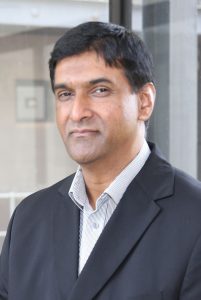
Prof Umesh Ramnarain
Prof Umesh Ramnarain research focus is mainly inquiry-based learning. His research is on inquiry teaching and learning, and its uptake in South African classrooms characterised by diversity and complexity in terms of intrinsic and extrinsic or environmental factors. The knowledge base he has built has important implications at both the national and international levels, especially in terms of inquiry teaching in underprivileged schools.
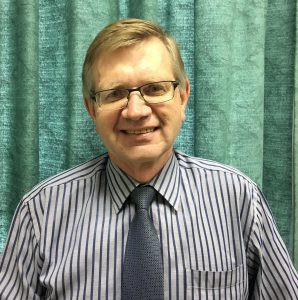
Prof Piet Ankiewicz
Prof Piet Ankiewicz has been awarded a C2 NRF rating for his foundational philosophical research on frameworks for technology education with the goal of advancing the teaching and learning of technology. His research interests include the affordances of the philosophy of technology for technology classroom pedagogy, teacher education, indigenous technology knowledge systems, and STEM education. He also has an interest in students’ attitudes towards technology. He recently authored chapters on students’ attitudes towards technology for Springer International Handbook of Technology Education (2018), the implications of Feenberg’s critical theory for technology education for a Brill Sense series book on philosophers of technology (2019), and indigenous technology knowledge systems for Information Age Publishing (2021). A chapter on approaches to teaching STEM for a Springer series has been accepted for publication in 2023. He also co-authored a chapter on human-centred design pedagogies to teach values in technology education for a Springer series (2022). Prof Piet Ankiewicz is now an Emeritus Professor but NRF rated.
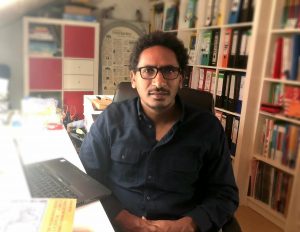
Prof Emnet Tadesse Woldegiorgis
Emnet Tadesse Woldegiorgis is a Professor and Director at the Ali Mazrui Center for Higher Education Studies (AMCHES), University of Johannesburg. He holds a PhD from the University of Bayreuth, Germany, where he also worked as a researcher between 2015 and 2019. Emnet holds a joint Master’s Degree in Higher Education Studies from Oslo University (Norway), Tampere University (Finland), and Aveiro University (Portugal). He is NRF-rated researcher with a portfolio of over 30 peer-reviewed academic publications, primarily focusing on higher education research. Emnet has received advanced-level research training in higher education from the Centre for Institutional Cooperation (ICIS) at Vrije Universiteit, Amsterdam, as well as specialised training in Leadership and Management of Higher Education Institutions from Maastricht School of Management. Emnet is currently the Chair of the World Council for Comparative Education Societies (WCCES) Peace Education task force and the advisor board member of the Finnish Higher Education Partnership Programmer (HEP) representing the African continent. Prior to pursuing his PhD, Emnet served in various roles, including Head of the Quality Assurance Office and Department Heads of various academic entities.
Woldegiorgis, E. T., & Chiramba, O. (2024). Access and success in higher education: fostering resilience in historically disadvantaged students in South Africa. Journal of Applied Research in Higher Education.
Woldegiorgis, E. T. & Balogun, B. J. (2024). Individualising collectivity: Rethinking the individualism–communitarianism debate in the context of students’ resilience during the Covid-19 era. Educational Philosophy and Theory, 1-12.
Woldegiorgis, E. T. (2024). Internationalisation of Higher Education Under Neoliberal Imperatives: The Political Economy of Student Mobility in Africa. In Critical Reflections on the Internationalisation of Higher Education in the Global South (pp. 13-31). Emerald Publishing Limited.
Woldegiorgis, E. T., & Yu, C. Q. (Eds.). (2024). Critical Reflections on the Internationalisation of Higher Education in the Global South. Emerald Publishing Limited.
Woldegiorgis, E. T. (2024). Rethinking the Internationalisation of Higher Education in South Africa in the Post-Pandemic Era: Towards a Blended Future. In Critical Reflections on the Internationalisation of Higher Education in the Global South (pp. 201-222). Emerald Publishing Limited.
Kibona, B., & Woldegiorgis, E. T. (2023). Reconstructing the social responsibilities of African universities towards citizenship education: perspectives from the ujamaa philosophy of Julius Nyerere. Curriculum perspectives, 43(Suppl 1), 165-174.
Woldegiorgis, E. T., & Monari, K. (2023). Access and politics of higher education for refugees: Comparative contexts from Uganda and Ethiopia. African Journal of Teacher Education, 12(2 Special Issue), 1-19.
Woldegiorgis, E.T. (2023). The Dynamics of Globalisation and Internationalisation Processes Shaping the Policies for African Higher Education. In: Daniel, B.K., Bisaso, R. (eds) Higher Education in Sub-Saharan Africa in the 21st Century. Springer, Singapore. https://doi.org/10.1007/978-981-99-3212-2_6
Woldegiorgis, E. T & Ndlovu, S. (2023). ‘Nothing for us without us’: Exclusion of students with disabilities in disability policy review at a South African institution of higher education. African Journal of Teacher Education, 12(1), 179-201.
Woldegiorgis, E. T. (2023). Changes and Continuity in the Roles and Functions of Higher Education in Sub-Saharan Africa. In Creating the New African University (pp. 40-66). Brill.
Woldegiorgis, E. T. & Balogun, B. J. (2023). Combating colonial mentality within higher learning spaces: The case of sub-Saharan African universities. African Journal of Teacher Education, 12(2 Special Issue), 94-118.
Woldegiorgis, E. T. (2023). Decolonising the African Union Regional Higher Education Policy: A Tentative Approach against Neocolonial Entanglement. In Unyoking African University Knowledge (pp. 120-137). Brill.
Bekele, T. A., Ofoyuru, D. T., & Woldegiorgis, E. T. (2023). Assessing University-Society Engagements: Towards a Methodological Framework. Innovative Higher Education, 1- 21.
Woldegiorgis, E. T. (2022). Mitigating the digital divide in the South African higher education system in the face of the Covid-19 pandemic. Perspectives in Education, 40(3), 197- 211.
Woldegiorgis, E. T., & Amutuhaire, T. (2022). Resilience in the Face of A Global Pandemic: Dilemmas of Equity and Inclusion in Ugandan Higher Education. Journal of Educational Studies, 2022(si1), 122-140.
Woldegiorgis, E. T., & Jonck, P. (2022). Higher Education in the Face of a Global Pandemic. BRILL.
Woldegiorgis, E. T. (2022). Responses and Mechanisms for Mitigating the Effects of the COVID-19 Pandemic on East African Higher Education. In Higher Education in the Face of a Global Pandemic (pp. 120-138). Brill.
Woldegiorgis, E. T. (2022). The Challenges of Online Learning in African Higher Education: A Critical Reflection on the Digital Divide Associated with the COVID-19 Pandemic. In Higher Education in the Face of a Global Pandemic (pp. 11-27). Brill.
Woldegiorgis, E. T. (2022). Configurations of progress and the historical trajectory of the future in African higher education. Educational Philosophy and Theory, 1-15.
Woldegiorgis, E. T. (2021) Decolonising the African Union Regional Higher Education Policy: A Tentative Approach against Neo-colonial Entanglement. In A. P. Ndofirepi, S. Vurayai, & G. Erima, Unyoking African University Knowledges: Voices from the Subaltern.
Woldegiorgis, E. T., Turner, I., & Brahima, A. (Eds.). (2020). Decolonisation of Higher Education in Africa: Perspectives from Hybrid Knowledge Production. Routledge.
Woldegiorgis, E., & Cross, M. (2020). Book Review: Re-visioning Education in Africa: Ubuntu- Inspired Education for Humanity. Edited by Emefa J. Takyi-Amoako and N’Dri T. Assié- Lumumba. Palgrave. Global Comparative Education: Journal of the World Council of Comparative Education Societies (WCCES), 4(1-2), 121-124.
Woldegiorgis, E. T. (2020). Re-Thinking Inclusive Higher Education for Students With Disabilities: A Proactive Approach Towards Epistemic Access in Ethiopia. In Social, Educational, and Cultural Perspectives of Disabilities in the Global South (pp. 235-250). IGI Global.
Woldegiorgis, E. T. (2020). Decolonising a higher education system which has never been colonised. Educational Philosophy and Theory, 1-13. doi.org/10.1080/00131857.2020.1835643.
Woldegirorgis, E. (2020). The emergence of decolonisation debates in African higher education. In: Woldegiorgis, E. T. Turner, Irina & A. Brahima, eds. Decolonisation of Higher Education in Africa: Perspectives from Hybrid Knowledge Production. London: Routledge, pp. 17-36.
Woldegiorgis, E., & Scherer, C. (Eds.). (2019). Partnership in Higher Education.Leiden, The Netherlands: Brill | Sense. doi: https://doi.org/10.1163/9789004411876
Woldegiorgis, E. T. (2019). Higher Education Partnership in Africa: The Case of the Pan- African University Network and the Mwalimu Nyerere Mobility Programme. In Partnership in Higher Education (pp. 12-28). Brill Sense.
Woldegiorgis, E. T., & Scherer, C. (2019). Challenges and Prospects for Higher Education Partnership in Africa: Concluding Remarks. In Partnership in Higher Education (pp. 203-211). Brill Sense.
Woldegiorgis, E. T. (2018). Policy Travel in Regionalisation of Higher Education: The Case of Bologna Process in Africa. In European Higher Education Area: The Impact of Past and Future Policies (pp. 43-59). Springer, Cham.
Woldegiorgis, E., Jonck, P., Goujon, A., & Lanoi, M. (2018). Educational Change and Empowerment: A South African Systems Analytical Approach. In A. Roodt, M. Priscilla, D. Katerere, & S. Hachigonta, Systems Analysis Approach for Complex Global Challenges (1 ed., pp. 230-253). Springer International Publishing. doi:10.1007/978-3- 319-71486-8

Dr Logan V Govender
Prior to joining AMCHES, Dr Govender was the Education Thematic Head of Save the Children South Africa from July 2016 to August 2019, responsible for programming in Early Childhood Development (ECD) and Basic Education. With more than 25 years’ experience in the education sector, he has worked as a teacher, policy analyst, independent researcher, and as Senior Research Manager in the Education and Skills Development programme of the Human Sciences Research Council, Pretoria. He has consulted for parastatals and policy think tanks and has held part-time research associate positions with the University of Johannesburg and the Cape Peninsula University of Technology. He has a PhD in Education Policy and Management from the University of the Witwatersrand (2008); and holds a Master’s degree in Applied Linguistics from the University of Illinois at Chicago. Dr Govender has several research-based, peer-reviewed publications to his credit, focusing on education policy analysis, teacher union-state relations and education reform. He is currently working on higher education curriculum issues and teacher professionalism and unionism.
Recent Publications:
All units published in 2022
- Govender, L. (2022). Teacher Unions and the State’s Management of the COVID-19 Pandemic in the Provision of Basic Education in South Africa. In Higher Education in the Face of a Global Pandemic(p. 28-50). Brill.
- Cross, M & Govender, L. (2022). Researching students’ epistemic access under COVID-19. Epistemological and Methodological Challenges. Critical Studies in Teaching and Learning (CriSTaL), 10(1), 1-22.
- Govender, L. (2022). Using Critical Policy Historiography in Education Policy Analysis: A South African Case Study. Education as Change, 26, 1-20.
All units published in 2023
Govender, L & Naidoo, D. (2023). Decolonial insights for transforming the higher education curriculum in South Africa. Curriculum Perspectives, 1-13.
Cross, M, Govender, L & Essop, A. (Eds.). (2023). The South African Democratic Teachers’ Union (SADTU) and the Struggle for Professional Unionism. UKZN Press.
Govender, L. (2023). Organisational Development and Efficiency: Key Ingredients for Professional Unionism. In M Cross, L Govender and A Essop (Eds.). The South African Democratic Teachers’ Union (SADTU) and the Struggle for Professional Unionism. UKZN Press, Durban.
Govender, L & Cross, M. (2023). Teacher Unions and Policy-Making in South Africa: Exclusion, Contestation and Collaboration. In M Cross, L Govender and A Essop (Eds.). The South African Democratic Teachers’ Union (SADTU) and the Struggle for Professional Unionism. UKZN Press, Durban.
Mashilo, PP & Govender, L. (2023) African identity and curriculum transformation at universities in South Africa. African Journal of Teacher Education, 12(2), 119-143.
Dzinoreva, T, Mavunga, G & Govender, L. (2023). Towards a context-relevant, institution-based ICT integration model of teacher education curriculum in Zimbabwe. African Journal of Teacher Education, 12(2), 162-188.
All units accepted for publication in 2024
Woldegiorgis, E & Govender, L. (Eds). (2024). Higher Education Transformation in Africa: A quest for an epistemological rupture. Vol. 1, Routledge.
Woldegiorgis, E & Govender, L. (Eds). (2024). Higher education Transformation in Africa: Change and Continuity, Vol II, Routledge.
Govender, L & Woldegiorgis, E. (2024). Higher Education Transformation in Africa: Reflecting on Michael Cross’s Intellectual Legacy. In: E Woldegiorgis and L Govender (Eds). Higher education Transformation in Africa: Change and Continuity, Vol II, Routledge.
Govender, L & Madalińska-Michalak, J. (2024). Researcher identity formation and cultivating postgraduate research communities: Towards a blended future. In K. Yassim (Ed) Leading Online Learning: Participatory Supervision as a Pathway for Cultivating Postgraduate Research Communities. Cambridge Scholars Press.
Dzinoreva, T, Govender, L & Mavunga, G. (2024). Rethinking ICT integration in teacher education curricula at Diploma Level in Zimbabwe. In K. Yu (Ed.) Higher Education ICT Integration in Africa: Readiness, Implementation and Trajectory. Routledge.
Woldegiorgis, E & Govender, L. (2024). Articulating the Complexities of African Higher Education: The Intellectual Odyssey of Michael Cross. Y Waghid and A Alasfour (Eds) Values Education and Beyond: Implications for Emotional Learning, Brill.
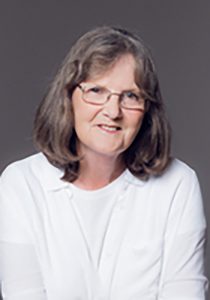
Prof Elizabeth Henning
Prof Elizabeth Henning is the South African National Research Foundation Chair for “Integrated Studies of Learning Language, Mathematics and Science in the Primary School.” She leads research in mathematical cognition and language in the early years of school as well as primary school children’s learning of science concepts and reading of science texts. She is a Fellow of the American Educational Research Association. She combines instructional film production with research.
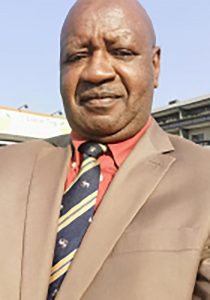
Dr Amasa Ndofirepi
Dr Amasa Ndofirepi is a Senior Lecturer in Philosophy of Education as well as a UJ Research Associate at AMCHES with research interests in African Philosophy of Education, Philosophy for Children, Critical thinking in education, Higher Education Studies with an eye on socially just epistemologies in African universities. He extensive experience teacher education in local and international institutions and his peer-reviewed work is published in books, book chapters and international journals.
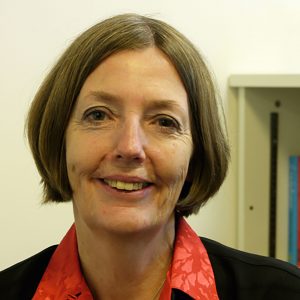
Prof Carmel McNaught
Carmel McNaught is Emeritus Professor of Learning Enhancement and former Director of the Centre for Learning Enhancement And Research (CLEAR) at The Chinese University of Hong Kong. She has accepted the role of Distinguished Visiting Professor at the University of Johannesburg in South Africa. Since the early 1970s, Carmel has worked in higher education in Australasia, southern Africa and the UK in the fields of chemistry, science education, second-language learning, eLearning, and higher-education curriculum and policy matters. She has been involved in several professional organizations and is a Fellow of the Association for the Advancement of Computers in Education. She has served on the editorial boards of 18 international journals; and is a prolific author with over 350 academic publications; recent publications and activities can be viewed at http://www.cuhk.edu.hk/clear/people/Carmel.html. She is currently a higher-education consultant, working mostly in Africa, Australia, Hong Kong and other countries in Asia, New Zealand, the UAE and the UK.
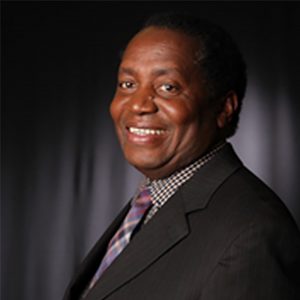
Prof Elias Mpofu
Elias Mpofu, Ph.D., DEd, CRC, FASROC, MAPS, is professor of health sciences at the University of North Texas, and visiting professor with the University of Johannesburg. He presently Adjunct Research Professor with the Western Sydney University’s Translational Health Research Institute (Campbell Campus) (2019-2022), and Honorary Professor of Health Sciences at the University of Sydney (2017- present), besides other interntional affiliations. A rehabilitation psychologist, Elias Mpofu is recipient of research awards in the health sciences including the the South African National Research Foundation, Australia Research Council, US National Science Foundation, US. National Institutes of Health [NIH] and the US National Institute on Disability, Independent Living and Rehabilitation Research. Professor Elias Mpofu was Head of Discipline of Rehabilitation Counselling at the University of Sydney (2008-2016), providing teaching, research, and service leadership to graduate programmes in rehabilitation counselling at that University. He serviced many committees at the University of Sydney. He was also a past Chair/Convenor of the Rehabilitation Psychology Interest Group of the Australian Psychological Society (2014-2015), panel member of the Australian ICF Disability and Rehabilitation Research Program (AIDRRP), advisory committee member of the World Health Organization’s [WHO] Collaborating Centre for Health Workforce Development in Rehabilitation and Long Term Care (2012-2017) and Examiner for the behavioral health module of the Royal Australasian College of Physicians (2012-present) and International Representative of the US National Council of Rehabilitation Education (2010-2012; 2018-2020). Professor at The University of Sydney

Kerry J Kennedy
Host: Prof. Robinson
Kerry J Kennedy is a graduate of Stanford University (MA, PhD), the University of New England, Australia (MLitt) and the University of New South Wales, Australia (MEd, BA DipEd). He has held senior academic positions in Australia and Hong Kong. He is currently an Advisor (Academic Development) at The Education University of Hong Kong and a Distinguished Visiting Professor in the Faculty of Education at the University of Johannesburg. His areas of research interest are curriculum policy and theory, classroom assessment and civics and citizenship education. He is currently Editor of Curriculum Perspectives, the journal of the Australian Curriculum Studies Association, Co-Editor of Educational Studies and the Series Editor for the Routledge Series on Schools and Schooling in Asia and Routledge’s Asia Europe Education Dialogue Series. He is a Life Member of the Australian Curriculum Studies Association, a Fellow of the Australian College of Education and a co-winner of the 2012 Richard M. Wolf Memorial Award presented by the International Association for the Evaluation of Educational Achievement. Publications for Kerry J Kennedy. Publications for Kerry J Kennedy
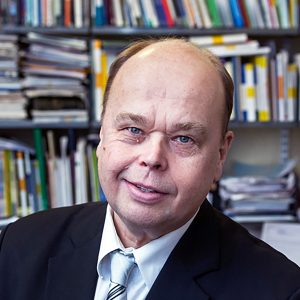
Prof Jari Lavonen
Jari Lavonen is a Full Professor of Physics and Chemistry Education (2003-) at the Department of Teacher Education, University of Helsinki, Finland and a Distinguished Visiting Professor (Childhood Education) (2016-) within the Faculty of Education, University of Johannesburg. From 2005 to 2009, he was a director of the Finnish Graduate School for Research in Science and Mathematics Education and from 2002 to 2007 was president of the Finnish Association for Research on Teaching of Mathematics and Science. He has worked in primary and secondary teacher education and in-service teacher training and developed and taught numerous courses on teaching and assessment methods in science and technology education. His main research interests lie in science and technology teaching and learning, teacher education and ICT use in science and technology education. He has published, together with other researchers, 157 refereed scientific papers in various journals and books, as well as 144 other articles and 166 books for either science teacher education or for science education. Professor Lavonen has been a director (PI) of 18 research projects with external research funding, and he has supervised 21 PhD theses.
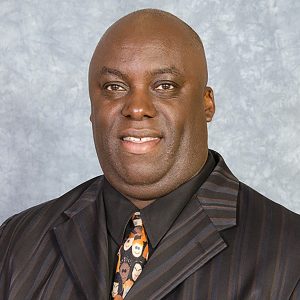
Prof Anthony J. Onwuegbuzie
Anthony J. Onwuegbuzie is Professor in the Department of Educational Leadership at Sam Houston State University, where he teaches doctoral-level courses in qualitative research, quantitative research, and mixed research, including program evaluation, teacher education, and educational psychology courses. Further, he is Distinguished Visiting Professor at the University of Johannesburg. His research areas primarily involve social and behavioral science topics, including disadvantaged and under-served populations such as minorities, children living in war zones, and juvenile delinquents. Also, he writes extensively on qualitative, quantitative, and mixed methodological topics. With a current h-index of 71, he has secured the publication of more than 400 works, including more than 300 journal articles, 50 book chapters, and 5 books. Most recently, he co-authored a book entitled Seven Steps to a Comprehensive Literature Review (SAGE). He is President of the Mixed Methods International Research Association.
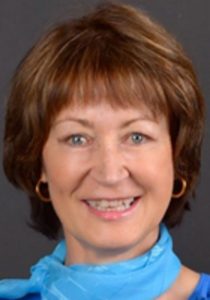
Prof Linda Chisholm
Linda Chisholm is a Professor and a former special advisor to the Minister of Basic Education in South Africa, and before that a Director in the Education and Skills Development research unit at the Human Sciences Research Council, Professor and Chair of Education at the University of Natal (now KwaZulu-Natal) and Director of the Education Policy Unit at the University of the Witwatersrand, Johannesburg. She has worked closely with government on curriculum reform, has served on several journal editorial boards and is currently on the international advisory board of the Journal of Curriculum Studies. She has published widely on the historical, contemporary and comparative aspects of education policy and curriculum in South Africa and the region. Her most recent books include Between Worlds: German Missionaries and the Transition from Mission to Bantu Education (Wits Press, 2017) and Teacher Preparation in South Africa: History, Policy and Future Perspectives (Emerald Press, 2019).
‘My research focus has straddled history and contemporary education and curriculum policy in South Africa and the region with an emphasis on the relationship between past, present and future. While I have retained a consistent interest in comparative and transnational education, post-colonial studies’ concerns with the complexities of local appropriations and adaptations, forms of hybridization, boundaries-crossings and -blurrings, interrelationships, entanglements and relationalities, have been at the centre of my work on learner-centred education in Africa, migration and education, textbook representations, curriculum and teacher education.’
Publications
Link: https://www.researchgate.net/profile/Linda_Chisholm2/research
Chisholm, L. ‘Landscapes of Education in South African History’ (forthcoming) in George Noblit (Ed) Oxford Research Encyclopaedia of Education. (New York, Oxford University Press, forthcoming)
Chisholm, L. ‘Transnationalism, Migration and Education in South Africa’ in R. Natarajan (ed) Sprache – Bildung – Geschlecht: Interdisziplinäre Ansätze in Flucht- und Migrationskontexten (Language – Education – Gender: Interdisciplinary Approaches in Refugee and Migration contexts) (Springer, 2020 forthcoming)
Chisholm, L. ‘Transnational colonial entanglements: South African teacher education college curricula’ in Gary McCulloch, Mariano Gonzalez Delgado and Ivor Goodson (eds) Transnational Perspectives on Curriculum History (London: Routledge, 2020)
Chisholm, L. ‘Corona, Crisis and Curriculum: History of Health Education in South Africa’, Southern African Review of Education, 2020
Chisholm, L. Teacher Preparation in South Africa: History, Policy and Future Direction (Bingley, UK: Emerald Press, 2019)
Chisholm, L. and Fig, D., ‘The Cold War in South African History Textbooks’ in Barbara Christophe, Peter Gautschi and Robert Thorp (eds) The Cold War in the Classroom : International Perspectives on Textbooks and Memory Practices (New York: Palgrave, 2019)
‘Late-Apartheid Education Reforms and Bantustan Entanglements’, African Historical Review, vol. 50, Issue 1-2, 2018, pp 27-45
Linda Chisholm, Michelle Friedman and Queenta Anyele Sindoh, ‘Decolonising History of Education in South African Teacher Education’ Southern African Review of Education vol. 24, no. 1, 2018, pp. 74-91
‘Representations of Race, Class and Gender in Textbooks’ in E Fuchs and A Bock. (eds) Palgrave International Handbook of Textbook Studies (New York: Palgrave, 2018)
Chisholm, L. Between Worlds: German Missionaries and the Transition from Mission to Bantu Education (Johannesburg: Wits Press, 2017)
‘Bantustan Education History: The ‘Progressivism’ of Bophutatswana’s Primary Education Upgrade Programme (PEUP), 1979-1988’ in S. Ally and A Lissoni (eds.) New Histories of South Africa’s Apartheid-Era Bantustans (Routledge, 2017)
‘”Fate Comes to the Mission Schools”: Fire at Bethel, 1953’, South African Historical Journal vol.69, no. 1, 2017, pp.121-31
‘Curriculum Transition in Germany and South Africa, 1990-2010,’ Comparative Education, vol. 51, no. 3, 2015, pp. 401-418
‘Comparing History Textbooks in Apartheid South Africa and the German Democratic Republic, 1950-1990,’ Southern African Review of Education, vol. 22, no. 1, 2015, pp. 80-94.
Education
Ph.D. University of the Witwatersrand, Johannesburg (1989) MA University of London School of Oriental and African Studies (1980) Postgraduate Certificate of Education (PGCE) University of London Institute of Education (1978) BA (Hons) University of Cape Town (1976)
Employment History
Professor, Centre for Education Rights and Transformation, University of Johannesburg Special Advisor to Minister of Basic Education, 2015 Director, Human Science Research Council : in research programmes: Education, Science and Skills Development; Child Youth, Family and Social Development and Education Policy Research, 2002-2009 Chair and Professor of Education, University of Natal Durban (now University of KwaZulu-Natal), 2000 Director, Education Policy Unit, University of the Witwatersrand, Johannesburg, 1991-1999 Senior Lecturer, University of the Witwatersrand, Johannesburg, 1989-1991 Lecturer, University of the Witwatersrand, Johannesburg, 1984-1989 Junior Lecturer, University of the Witwatersrand, Johannesburg, 1981-1984 1994 – To date National Government Appointments Member of Ministerial Committee on Diversity in South African Textbooks, 2016-8 Special Advisor to Minister of Basic Education, 2009-2014 Reference Group, Ministerial Committee on Gender Equality in Education, 2004 – 2005 Ministerial Committee Project Leader for Review and Revision of Curriculum 2005, Ministry of Education, Pretoria, 2000-2002 Chair, Ministerial Review Committee to review Curriculum 2005, 2000
Other Positions held
Board member of the Centre for Research on Education and the Labour Market, University of the Witwatersrand, Johannesburg Advisory Board member of Wits Mathematics South African Research Chairs Connect project Board member of Public Affairs Research Institute (PARI) Johannesburg Member of ILO/UNESCO Board of Experts on Teachers NRF B Rated Researcher
Editorships
2017 – 2018 Associate Editor (Education and Social Science) ASSAF’s South African Journal of Science 2014 – Executive Committee member of Education as Change 2012 – International Advisory Board, Journal of Curriculum Studies 2008 – Editorial Advisory Board, Girlhood Studies 2013-7 Associate Editor of International Journal of Educational Development 2005- 2010 Editor, Southern African Review of Education 2008 – 2012 Editorial Advisory Board, Development Southern Africa 2002- 2008 International Advisory Editorial Board, Compare 2006-8 International Advisory Board, Gender and Education 2004- Editorial Advisory Board, African Education Review 2005-8 HSRC Press Editorial Board
Professional Registration and Affiliations
International Standing Conference on the History of Education (ISCHE) (Scientific Committee) Comparative and International Education Society (CIES) (Member) British Education Research Association (Member) South African Education Research Association (SAERA) (Member) Southern African Comparative and History Education Society (SACHES)
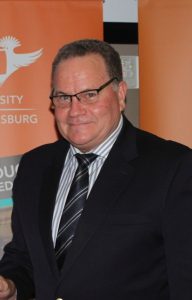
Prof Christo Van der Westhuizen
Christo Van der Westhuizen, PhD is currently Professor in Learning Technologies in the Department of Sciences and Technology Education at the Faculty of Education of the University of Johannesburg. He was employed by the North-West University Faculty of Education Sciences of the Potchefstroom Campus for 21 years, also the sub-area leader for blended learning in the research unit for self-directed learning, and subject chair for Geography Education for several years. He has been working in the field of teacher education for the past 20 years and his research focus is the effective integration of ICT’s (including Geo-spatial technologies) in blended learning environments to foster self-directed learning. He is an Editorial Board member of the Journal of Geography in Higher Education (JGHE). ORCID 0000-0002-4762-8538
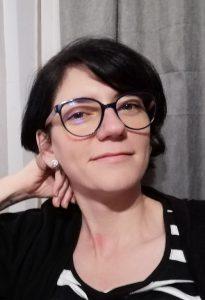
Dr. Roxanne Bailey
ORCID: https://orcid.org/0000-0001-5326-247X
As a Y2-Rated researcher Dr. Bailey’s main research focus is the promotion of self-directed learning through the implementation of cooperative learning and blended learning especially in the fields of computer science education. In her chapter “A systematic review of research on the use of technology-supported cooperative learning to enhance self-directed learning” she, along with her colleague Prof Elsa Mentz, explored the incorporation of technology when implementing cooperative learning. Roxanne has received several research grants for her research and is currently involved in three research projects aimed at investigating technology-supported cooperative learning in computer science education modules. Apart from her research focus being implemented mostly in computer science education modules, Roxanne has investigated strategies for supporting novice programmers at High School level – Grade 10, as well as Tertiary level – BEd students “Introduction to programming module”.

Prof Mlamuli Nkosingphile Hlatshwayo
Professor Mlamuli Nkosingphile Hlatshwayo is an Associate Professor at the Ali Mazrui Centre for Higher Education Studies at the University of Johannesburg, South Africa. His research interests include theorising higher education transformation and decolonisation in the global South, student movements and re-thinking the public university beyond the neoliberal colonisation. Prof Hlatshwayo has over 32 peer-reviewed publications and over 80 national and international conference presentations, invited seminars and public lecturers. He holds a PhD in Higher Education Studies and a Masters’ degree (cum laude) in Political and International Studies from Rhodes University.
Prof Hlatshwayo was the visiting scholar at the University of Connecticut’s Neag School of Education for 2018-2019, the Jakes Gerwel Distinguished Fellow in Education, as well as the 2021-2022 Andrew W. Mellon Early Career Fellow in higher education. He served as a member of the Council on Higher Education (CHE)’s Review of Higher Education in South Africa Twenty-Five Years into Democracy (2022). He is the current grant recipient of the National Institute for the Humanities and Social Sciences’ catalytic grant, focusing on “older” early career academics in South African higher education. Prof Hlatshwayo’s co-edited book, Decolonising Knowledge and Knowers: Struggles for University Transformation in South Africa, was published with Routledge in 2022. He was recently elected to be an executive member of the South African Education Research Association (SAERA) for 2023-2024.
Publications:
BOOKS:
- Hlatshwayo, MN., Fataar, A., Adendorff, H., Blackie, MA and Maluleka, P. (2022). Decolonizing Knowledge and Knowers: Struggles for University Transformation in South Africa. London and New York: Routledge.
BOOK CHARPTERS:
- Hlatshwayo, MN. (2023). Academic development in the period of disruption: A decolonial insight. In Shoba, R. and Chitanand, N. (Eds.). Academic Staff Development Disruptions, Complexities, Change (Envisioning new Futures). Stellenbosch: African Sun Media.
- Hlatshwayo, MN. (2023). When they see and hear us: Black students and the fight for a decolonial university in South Africa. In Conner, J., Raaper, R., Valenzuela, CG. And Gauthier, L. (Eds.). Bloomsbury Handbook of Student Voice in Higher Education. London: Bloomsbury Publishing.
- Hlengwa, A., Hlatshwayo, MN, and Ngcwangu, S. (2022). Access and Success with a Focus on Public Higher Education. Review of Higher Education in South Africa Twenty-five years into Democracy. Pretoria: Council on Higher Education. CHE: Pretoria.
- Hlatshwayo, MN. (2022). Decolonizing the university: Some preliminary notes on recontextualizing (decolonial) knowledge in the time of transformation. In Hlatshwayo, MN., Fataar, A., Adendorff, H., Blackie, M. and Maluleka, P. (Eds.). Decolonising Knowledge and Knowers: Struggles for University Transformation in South Africa. London and New York: Routledge.
- Hlatshwayo, MN., Fataar, A., Adendorff, H., Blackie, MA., and Maluleka, P. (2022). Introducing ‘decolonising knowledge and knowers. In Hlatshwayo, MN., Fataar, A., Adendorff, H., Blackie, MA., and Maluleka, P. (Eds.). Decolonising Knowledge and Knowers: Struggles for University Transformation in South Africa. London and New York: Routledge.
- Hlatshwayo, MN. (2021). Re-thinking South African higher education calls for epistemic freedom: Beyond the abyssal line and towards the field of knowledge. In Sosibo, L and Ivala, E. (Eds.). Creating Effective Teaching and Learning Spaces: Shaping Futures and Envisioning Unity in Diversity and Transformation. Delaware: Vernon Press.
- Hlatshwayo, MN, Shawa, LB, and Nxumalo, SA. (2021). Ubuntu currere in the academy: a case study from the South African experience. In Morreira, S., Luckett, K, Kumalo, S and Ramgotra, M. (Eds.). Decolonising Curricula and Pedagogy in Higher Education, New York: Routledge.
- Hlatshwayo, MN. (2020). The Emergence of the Lockdown University: Pitfalls, Challenges, Opportunities. In Ramrathan, L., Ndimande-Hlongwa, N. Mkhize, N. & Smit, J.A. (Eds.). Rethinking the Humanities Curriculum in the Time of COVID-19. Volume #01. Pietermaritzburg: Alternation African Scholarship Book Series.
JOURNAL ARTICLES:
- Munyaradzi, J. & Hlatshwayo, M. N. (2025) Theorising the Voices of Senior Academics on Decolonising the University Curriculum in an Open Distance E-Learning Institution in South Africa. African Journal of Inter/Multidisciplinary Studies, 7(1), pp. 1–13. https://doi.org/10.51415/ajims.v7i1.1685
- Hlatshwayo, M. (2024). Women postdocs in a neoliberal higher education in South Africa. Southern African Review of Education, 29(2), 35–49.
- Hlatshwayo, MN. (2024). You’re brought in as a workhorse and there’s no real security here! Postdocs, precarity and the neoliberal university in South Africa. PINS – Psychology in Society 66(2): 26-44.
- Hlatshwayo, MN. & Mfeka, N.N. (2024). Kunzima, it’s not for the fainthearted: Narratives of the student representative council in negotiating student leadership in higher education. South African Journal of Higher Education 38(5): 245‒262.
- Hlatshwayo, MN. (2024). On pipelines and precarity: Competing narratives on the roles and functions of postdocs in South African higher education. Education as Change 28(16746): 1-19.
- Hlatshwayo, MN. (2024). A decolonial reading of Bernstein’s sociology of education in transforming the university in South Africa. Acta Academica 56(1): 62-79.
- Hlatshwayo, MN. (2024). On violence in South African higher education: An ideological perspective. Perspectives in Education 42(1), 238-253.
- Gachago, D., Hlatshwayo, MN., Van Heerden, L., and Nkoala, S. (2024). Two unlikely bedfellows: Towards a decolonial unconference methodology. Critical Studies in Teaching & Learning 12(1), 21-43.
- Hlatshwayo, MN. (2024). Beyond the neoliberal university: Problematising the staffing South Africa’s universities framework. TD: Journal of Transdisciplinary Research in Southern Africa 20(1): 1-8.
- Hlatshwayo, MN. & Mbatha, AD. (2024). Beyond COVID-19: Teaching and learning lessons for the next pandemic through Ubuntu currere. Transformation in Higher Education 12(0), 1-8.
- Hlatshwayo, MN. & Majozi, NVG. (2024). Young, gifted, and Black: Exploring Black early career academics’ experiences in negotiating their being and belonging in a South African university. SA Journal of human Resource Management 22(1), 1-8.
- Hlatshwayo, MN. & Ngcobo, BM. (2023). Are we there yet? An intersectional take on Black women academics’ experiences in a South African university. Journal of Education 1(92): 169-185.
- Hlatshwayo, MN & Ngcobo, BM. (2023). Doing just enough to get by: Voices of Black female early career academics in navigating the publish or perish discourse in South Africa. Education as Change 27(1): 1-21.
- Hlatshwayo, MN, Zondi, TA, and Mokoena, TD. (2023). It gives me anxiety! Black Academics’ experiences of teaching large classes during/ post the Covid-19 pandemic in a South African university. Perspectives in Education 41(2), 104-119.
- Hlatshwayo, MN. (2023). Decolonising the South African University: First Thoughts. South African Journal of Higher Education 37(3), 100-112.
- Hlatshwayo, MN. (2022). The rise of the neoliberal university in South Africa: Some implications for curriculum imagination(s). Education as Change, 26 (1), 1-21.
- Hlatshwayo, MN (2021). The ruptures in our rainbow nation: Reflections on teaching and learning practices in the time of #RhodesMustFall. Critical Studies in Teaching & Learning 9(2), 1-18.
- Hlatshwayo, MN, Khumalo, S.D., and Nzimande, N. (2021). The pandemic is our portal: Reimagining teaching and learning in the time of Covid-19. African Perspectives of Research in Teaching and Learning 5(1), 59-77.
- Hlatshwayo, MN & Alexander, I. (2021). We’ve been taught to understand that we don’t have anything to contribute towards knowledge: Exploring Academics’ understanding of decolonising curricula in higher education. Journal of Education 82(1). 44-59.
- Hlatshwayo, MN. (2020). Being Black in South African higher education: An intersectional insight. Acta Academia 52(2), 163-180.
- Hlatshwayo, MN, Shawa, LB. and Nxumalo, SA. (2020). Ubuntu currere in the academy: A case study from the South African experience. Third World Thematics (1)1, 1-17.
- Hlatshwayo, MN & Zondi, TA. (2020). Gazing at South African higher education transformation through the potential role of the Wesleyan quadrilateral: A theological approach. HTS Teologiese Studies / Theological Studies. 76(1).
- Hlatshwayo, MN & Shawa, LB. (2020). Towards a critical re-conceptualisation of the purpose of higher education: The role of Ubuntu-Currere in re-imagining teaching and learning in South African higher education. Higher Education Research & Development 39(1) 26-38.
- Hlatshwayo, MN. (2019). Thinking through the organic crisis and epistemic disobedience in South African higher education curricula: Making Political Science relevant. Alternation: Interdisciplinary Journal for the Study of the Arts and Humanities in Southern Africa. 27(1) 6587.
- Hlatshwayo, MN & Fomunyam, KG. (2019a). Theorising First-generation Students’ Successes at a Historically White South African University. Alternation: Interdisciplinary Journal for the Study of the Arts and Humanities in Southern Africa 28 (4) 84-115.
- Hlatshwayo, MN & Fomunyam, GK. (2019b). Theorising the #MustFall Student Movements in Contemporary South African Higher Education: A Social Justice Perspective. Journal of Student Affairs in Africa. 7(1) 61-80.
- Hlatshwayo, MN & Fomunyam, GK. (2019c). Views from the margins: Theorising the experiences of Black working-class students in academic development in a historically white South African university. TS: The Journal for Transdisciplinary Research in Southern Africa. 15(1): 1-11.
- Vincent, LD & Hlatshwayo, MN. (2018). Ties That Bind: The Ambiguous Role Played by Social Capital in Black Working Class First-Generation South African Students’ Negotiation of University Life. South African Journal of Higher Education 32(3). 118-138.
- Hlatshwayo, MN & Fomunyam, GK. (2018a). Genopolitics: The dormant niche in political science curriculum in South African universities. TD: The Journal for Transdisciplinary Research in Southern Africa 14(1). 1817-4434.
- Hlatshwayo, MN & Fomunyam, GK. (2018b). Othering the Higher Education Sector in Governance and Democratic Processes in Africa. CODESRIA Bulletin 1(2): 26-29.
SPECIAL ISSUE GUEST EDITOR:
- Hlatshwayo, MN. & Prozesky, H. (2025). Scholars in the margins: The complex lives of postdocs in higher education. Education as Change. https://unisapressjournals.co.za/index.php/EAC/announcement/view/157
- Hlatshwayo, MN. & Moloi, TM. (2024). The Neoliberal Turn in Higher Education: Pitfalls, Challenges, Possibilities in the global South. Transformation in Higher Education 9(0). https://thejournal.org.za/index.php/thejournal/issue/view/9
- Rusznyak, L, Hlatshwayo, MN, Fataar, A. and Blackie, M. (2021). Knowledge-building and knowers in educational practices. Journal of Education, 1(18). https://journals.ukzn.ac.za/index.php/joe/issue/view/138
OPINION PIECES:
- Hlatshwayo, MN. (2025). A Decade of #RhodesMustFall: The Long Road to Higher Education Transformation. IOL. https://www.iol.co.za/opinion/a-decade-of-rhodesmustfall-the-long-road-to-higher-education-transformation-6ace45d4-dd26-4140-a61f-e2d66669f0c3
- Hlatshwayo, MN. (2025). Large number of student applications for scarce varsity spaces is deeply worrying. https://www.news24.com/news24/opinions/columnists/guestcolumn/opinion-large-number-of-student-applications-for-scarce-varsity-spaces-is-deeply-worrying-20250129
- Hlatshwayo, MN. (2024). Exorbitant vice-chancellor salary packages suggest something is fundamentally broken in our higher education system. The Daily Maverick. https://www.dailymaverick.co.za/opinionista/2024-08-22-exorbitant-vice-chancellor-salary-packages-suggest-something-is-fundamentally-broken-in-our-higher-education-system/
- Hlatshwayo, MN. (2024). The GNU offers an opportunity to reimagine a new social contract for South Africa’s universities. Daily Maverick. https://www.dailymaverick.co.za/opinionista/2024-07-12-the-gnu-offers-an-opportunity-to-reimagine-a-new-social-contract-for-south-africas-universities/
- Hlatshwayo, MN & Bertram, CA. (2022). Revisiting the purposes of higher education in the time of COVID-19. UKZNDABA. https://ndabaonline.ukzn.ac.za/UkzndabaStory/Vol8-Issue13/Revisiting%20the%20Purposes%20of%20Higher%20Education%20in%20the%20Time%20of%20COVID19/
- Hlatshwayo, MN. (2013). Feminizing Fanon, a Critical analysis of T. Denean Sharpley-Whiting’s Frantz Fanons: Conflicts and Feminisms. The Frantz Fanon Blog. https://readingfanon.blogspot.com/2013/10/feminizing-fanon-critical-analysis-of-t.html
- Hlatshwayo, MN. (2013). Of Being and Nothingness: Critical analysis of Lewis Gordon’s ‘Fanon and the Crisis of European Man’. The Frantz Fanon Blog. https://readingfanon.blogspot.com/2013/09/of-being-and-nothingness-critical.html
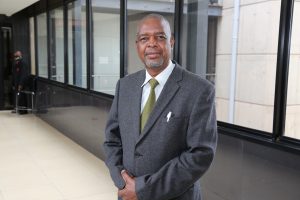
Prof Mdutshekelwa (Mdu) Ndlovu
Prof Mdutshekelwa (Mdu) Ndlovu is an NRF rated Professor of Mathematics Education in the Department of Mathematics, Science and Technology Education (MSTEd) in the Faculty of Education. His research interests include the integration of ICTs into the teaching and learning of mathematics at high school and undergraduate (pre-service) levels. He has published and continues to supervise Honors, Masters and Doctoral candidates in this niche area including pre-service teachers’ competencies in and beliefs about technology integration in the teaching of mathematics. He is co-editor of a Routledge scholarly book on the integration of ICTs in STEM education in Africa and has authored and co-authored numerous journal articles, book chapters and conference proceedings. He is an Associate Editor of Pythagoras, an accredited DHET, Scopus and DOAJ listed mathematics education journal.

Dr Chiedu Eseadi
Dr Eseadi serves as a Senior Lecturer within the Department of Educational Psychology. His research interests include career counselling, career transitions, interventions for individuals with disabilities, mental health and workplace interventions, educational and career guidance.
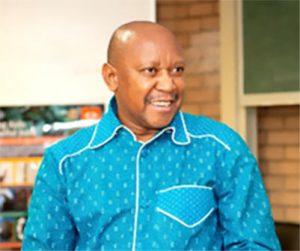
Prof Maximus Monaheng Sefotho
Maximus Monaheng Sefotho (PhD) is a Full Professor in the Department Educational Psychology – University of Johannesburg. His research has focuses on disability, career transition of youth with disabilities and hephapreneurship, a neology he coined for persons who are neither in education, employment or training and is geared towards transformation and social change. Prof. Sefotho coined another portmanteau: Technopedandragogy owing to the disruption of teaching and learning during COVID-19. Technopedandragogy finds a home in Open Distance e-Learning (ODeL) Universities. Prof. Sefotho is the Director of the Centre for Neurodiversity@UJ.
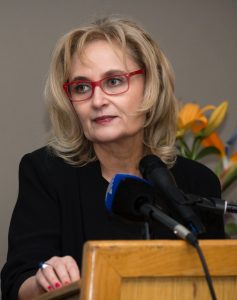
Prof Sarah Gravett
Sarah Gravett is a professor of teacher education and development at the University of Johannesburg (UJ) and was the dean of the Faculty of Education at UJ for fifteen years up to December 2021. Her research foci have included dialogic teaching, the design of learning environments in higher and adult education and teacher education. Currently, she is mainly involved in projects on education imperatives for a fast-changing world, focusing particularly on teacher education and development. Here she leads and is involved in projects that investigate teacher education models, the incorporation of the science of learning in teacher education, creative coding and educational robotics for teachers, making as a pedagogy and using mixed-reality simulations in teacher education. She is a C-rated researcher and a member of the Academy of Science of South Africa (ASSAf).
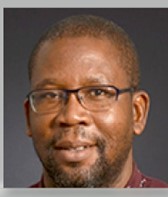
Prof Morgan Nkululeko Ndlovu
Morgan Nkululeko Ndlovu is a full Professor and NRF-rated scholar. He is a transdisciplinary scholar who publishes on decolonizing knowledge and power, indigenous knowledge systems (IKS), education rights, and transformation with specific to Africa. His most recent publications include Performing Indigeneity: Spectacles of Culture and Identity in Coloniality (Pluto), and Marxism and Decolonization in the 21st Century: Living Theories and True Ideas (Routledge). He is an Associate Editor of the Inkanyiso: Journal of African Thought, a Ford Foundation International Fellow, National Research Foundation-rated scholar and a member of the International Advisory Board of the African Research Universities (ARUA)’s Centre of Excellence on Notions of Identities in Africa. He is currently editing a Routledge-commission Handbook of Decolonization. Professor Ndlovu is available to supervise Masters, doctoral and post-doctoral fellows within his research field.
Prof Caroline Fitzpatrick
Caroline Fitzpatrick is a professor of child development at the Université de Sherbrooke in the faculty of education and visiting research fellow at the University of Johannesburg in the department of childhood education. She is also the holder of the Tier 2 Canada research Chair on Digital media use by children and its implications for promoting togetherness: an ecosystemic approach. Her research aims to better understand the consequences of child and youth media habits on physical, cognitive, and social development. In 2023 she was awarded the Tremplin award for her exceptional contribution to research in the social sciences.
